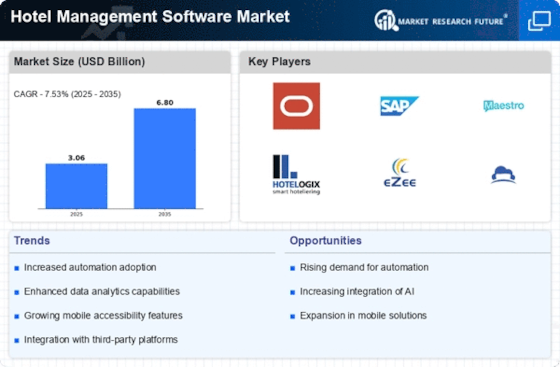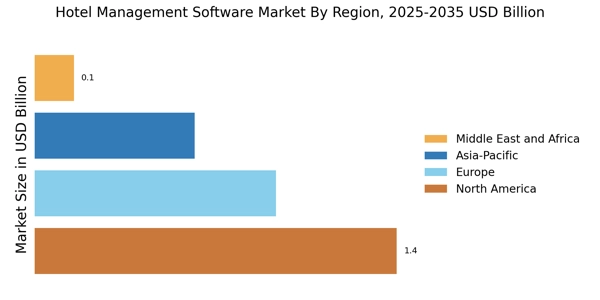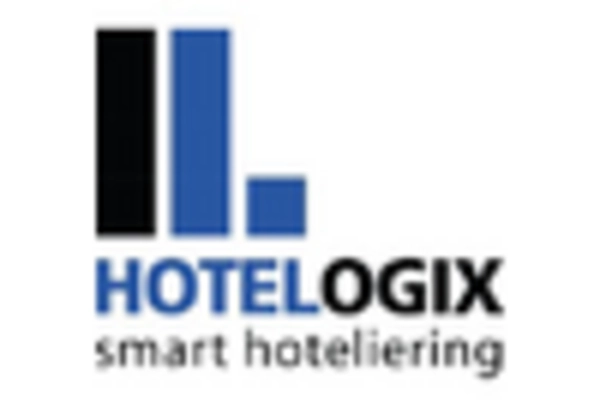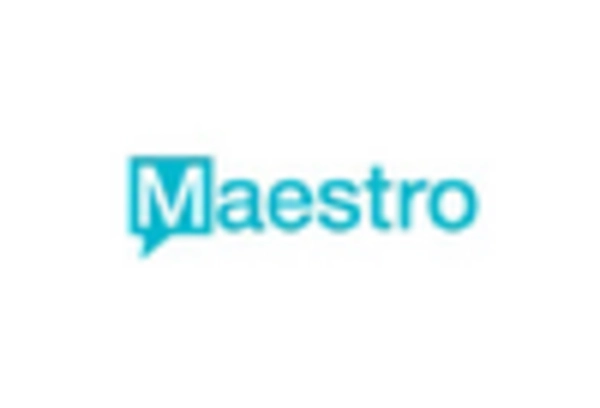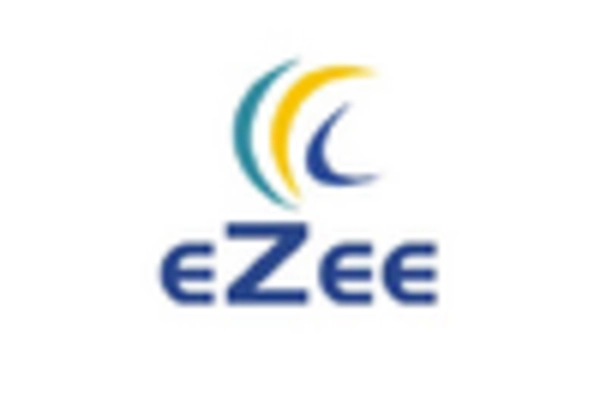Adoption of Mobile Solutions
The adoption of mobile solutions is rapidly transforming the Hotel Management Software Market. With the increasing prevalence of smartphones, hotels are integrating mobile applications into their management systems to enhance guest engagement and streamline operations. Mobile solutions enable guests to make reservations, check in, and access services directly from their devices, thereby improving convenience and satisfaction. Recent studies indicate that hotels utilizing mobile technology experience a 30% increase in direct bookings. Furthermore, mobile solutions facilitate real-time communication between staff and guests, allowing for prompt service delivery. As the demand for mobile accessibility continues to rise, the adoption of mobile solutions emerges as a significant driver in the Hotel Management Software Market.
Rising Demand for Automation
The Hotel Management Software Market experiences a notable surge in demand for automation solutions. As hotels strive to enhance operational efficiency, automation tools are increasingly adopted to streamline processes such as booking management, guest check-in, and billing. This trend is underscored by a report indicating that the automation segment is projected to grow at a compound annual growth rate of 10% over the next five years. By minimizing manual tasks, hotels can allocate resources more effectively, thereby improving guest satisfaction and operational performance. The integration of automated systems not only reduces human error but also allows staff to focus on delivering superior customer service, which is crucial in a competitive landscape. Consequently, the rising demand for automation is a pivotal driver in the Hotel Management Software Market.
Increasing Focus on Data Analytics
In the Hotel Management Software Market, the increasing focus on data analytics is reshaping how hotels operate. With the advent of advanced analytics tools, hotels can now harness vast amounts of data to gain insights into customer preferences, booking patterns, and operational efficiencies. This trend is reflected in a market analysis that suggests the data analytics segment is expected to grow by 15% annually. By leveraging data analytics, hotels can make informed decisions that enhance marketing strategies, optimize pricing, and improve guest experiences. Furthermore, the ability to analyze customer feedback and behavior allows hotels to tailor their services, thereby fostering loyalty and repeat business. As a result, the emphasis on data analytics is becoming a critical driver in the Hotel Management Software Market.
Expansion of Online Travel Agencies
The proliferation of online travel agencies (OTAs) significantly influences the Hotel Management Software Market. As OTAs continue to dominate the booking landscape, hotels are compelled to adopt sophisticated management software that integrates seamlessly with these platforms. This integration is essential for maximizing visibility and ensuring competitive pricing. Recent statistics indicate that OTAs account for over 40% of hotel bookings, highlighting their importance in the market. Consequently, hotels that utilize advanced management software can better manage their inventory, pricing strategies, and promotional efforts across multiple channels. This trend not only enhances operational efficiency but also drives revenue growth, making the expansion of OTAs a vital driver in the Hotel Management Software Market.
Growing Emphasis on Customer Experience
The Hotel Management Software Market is increasingly driven by a growing emphasis on customer experience. As competition intensifies, hotels recognize the necessity of providing exceptional service to attract and retain guests. This focus on customer experience is reflected in the adoption of software solutions that facilitate personalized services, such as tailored recommendations and loyalty programs. Market data suggests that hotels investing in customer experience technologies see a 20% increase in guest satisfaction scores. By leveraging management software that enhances the guest journey, hotels can differentiate themselves in a crowded market. This trend underscores the importance of customer-centric strategies, positioning the emphasis on customer experience as a key driver in the Hotel Management Software Market.


